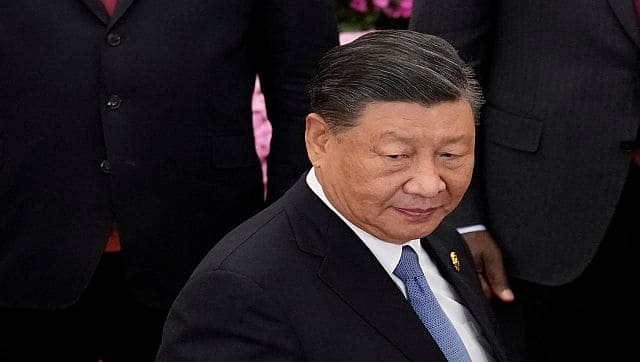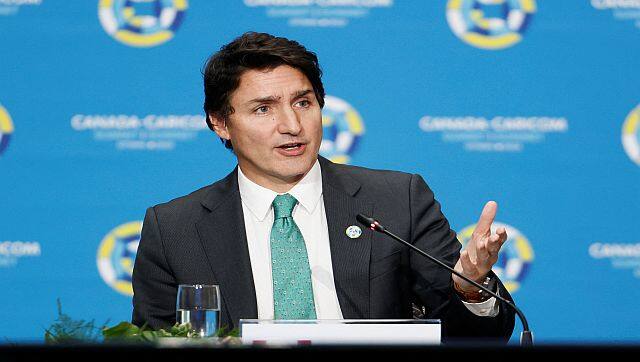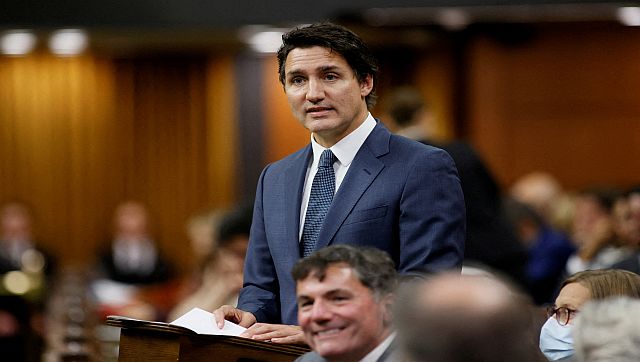Canada issued a warning on Monday about a “spamouflage” misinformation effort linked to China that employed waves of tweaked online posts and deepfake videos to criticise and discredit Canadian lawmakers. According to the government ministry, the bot network left thousands of messages accusing dozens of members of Parliament, including Prime Minister Justin Trudeau and Opposition leader Pierre Poilievre, of criminal and ethical infractions on their social media accounts. But what is spamouflage? Why is China trying to target Canadian lawmakers, and what has Canada said? Let’s take a deeper look. What is spamouflage? A “spamouflage” campaign is one that uses a network of new or hijacked social media accounts to disseminate propaganda across several platforms, including Facebook, X/Twitter, Instagram, YouTube, Medium, Reddit, TikTok, and LinkedIn. It combines the words “spam” and “camouflage,” and it intends hidden attempts to distribute spam-like content and propaganda within more ordinary, human-interest style content. Spamouflage networks, according to Global Affairs, are usually restricted within their own echo chambers of fake users and rarely draw organic social media participation from actual users. The same bot networks circulated misinformation claiming that the Hawaiian wildfires were caused by a secret US military “weather weapon,” and they have been linked to misinformation about Japan’s August Fukushima water release. How is China targeting Canadian lawmakers? It began in early August and intensified in September, with the goal of “discrediting and denigrating the targeted MPs” and “silencing criticism of the CPP,” or Chinese Communist Party. According to Global Affairs, the bot network left thousands of comments in English and French on MPs’ accounts, claiming that a critic of the Chinese Communist Party in Canada had charged the various MPs of criminal and ethical crimes. [caption id=“attachment_13288992” align=“alignnone” width=“640”] China’s Spamouflage campaign began in early August and intensified in September, with the goal of “discrediting and denigrating the targeted MPs” and “silencing criticism of the CPP,” or Chinese Communist Party. Reuters[/caption] The messages were reported to have appeared across the political spectrum, including on the accounts of Prime Minister Justin Trudeau, Opposition Leader Pierre Poilievre, and other Cabinet ministers. The “spamouflage” campaign also used what were most certainly deepfake films, which were digitally altered by artificial intelligence and targeted the individuals. This comes after tech giant Meta stated in an August security assessment that it has erased hundreds of Facebook and Instagram accounts associated with the huge online Chinese spam operation. Active across more than 50 platforms and forums including Facebook, Instagram, TikTok, YouTube and X, formerly known as Twitter, a Meta executive said it was believed to be “the largest” and “most prolific covert influence operation” in the world. According to the Meta report, the network often posted support for China as well as criticisms of the United States, Western foreign policy, and critics of the Chinese government such as journalists and scholars. Taiwan, Australia, the United Kingdom, Japan, and Chinese-speaking audiences worldwide have also been targeted. What is the motivation behind China’s spamouflage campaign? According to the GAC report, the operation had two main objectives. “First, it likely seeks to discredit and denigrate the targeted MPs through seemingly organic posts, alleging impropriety, by posting waves of social media posts and videos that call into question the political and ethical standards of the MPs, using a popular Chinese-speaking figure in Canada,” the report said.
Also Read: Newsclick and beyond: Unveiling China’s information warfare tactics in India
“Second, it likely seeks to silence criticism of the CCP by getting MPs to distance themselves from the critic and discouraging wider online communities from engaging with them.” How Canada reacted? “This campaign could discourage and make it difficult for MPs to carry out their duties and may dissuade MPs and diaspora communities in Canada from speaking out on issues which concern them,” said a foreign ministry report about the incident. In a statement, the Chinese embassy in Canada said Beijing has never interfered in the internal affairs of other countries. It said the accusations were a “blatant smear campaign” and that Canada was a “downright liar and disseminator of false information”. “For some time now, the Canadian side has been falsely accusing China of spreading false information against Canadian politicians, a move that is in itself a dissemination of false information, in the absence of any direct and substantive evidence,” the embassy statement said, adding that Canada should do more to improve and develop bilateral relations. [caption id=“attachment_13289002” align=“alignnone” width=“640”]
China’s Spamouflage campaign began in early August and intensified in September, with the goal of “discrediting and denigrating the targeted MPs” and “silencing criticism of the CPP,” or Chinese Communist Party. Reuters[/caption] The messages were reported to have appeared across the political spectrum, including on the accounts of Prime Minister Justin Trudeau, Opposition Leader Pierre Poilievre, and other Cabinet ministers. The “spamouflage” campaign also used what were most certainly deepfake films, which were digitally altered by artificial intelligence and targeted the individuals. This comes after tech giant Meta stated in an August security assessment that it has erased hundreds of Facebook and Instagram accounts associated with the huge online Chinese spam operation. Active across more than 50 platforms and forums including Facebook, Instagram, TikTok, YouTube and X, formerly known as Twitter, a Meta executive said it was believed to be “the largest” and “most prolific covert influence operation” in the world. According to the Meta report, the network often posted support for China as well as criticisms of the United States, Western foreign policy, and critics of the Chinese government such as journalists and scholars. Taiwan, Australia, the United Kingdom, Japan, and Chinese-speaking audiences worldwide have also been targeted. What is the motivation behind China’s spamouflage campaign? According to the GAC report, the operation had two main objectives. “First, it likely seeks to discredit and denigrate the targeted MPs through seemingly organic posts, alleging impropriety, by posting waves of social media posts and videos that call into question the political and ethical standards of the MPs, using a popular Chinese-speaking figure in Canada,” the report said.
Also Read: Newsclick and beyond: Unveiling China’s information warfare tactics in India
“Second, it likely seeks to silence criticism of the CCP by getting MPs to distance themselves from the critic and discouraging wider online communities from engaging with them.” How Canada reacted? “This campaign could discourage and make it difficult for MPs to carry out their duties and may dissuade MPs and diaspora communities in Canada from speaking out on issues which concern them,” said a foreign ministry report about the incident. In a statement, the Chinese embassy in Canada said Beijing has never interfered in the internal affairs of other countries. It said the accusations were a “blatant smear campaign” and that Canada was a “downright liar and disseminator of false information”. “For some time now, the Canadian side has been falsely accusing China of spreading false information against Canadian politicians, a move that is in itself a dissemination of false information, in the absence of any direct and substantive evidence,” the embassy statement said, adding that Canada should do more to improve and develop bilateral relations. [caption id=“attachment_13289002” align=“alignnone” width=“640”] The “spamouflage” campaign also used what were most certainly deepfake films, which were digitally altered by artificial intelligence and targeted the individuals. Reuters[/caption] According to an email from GAC officials to the affected MPs, 47 of them from across Canada were targeted. The email informed MPs on how to defend themselves from foreign meddling and assured them that the campaign posed no threat to their safety. China-Canada relations turned icy in late 2018 when Canadian police detained a Chinese telecommunications executive. Shortly after, Beijing arrested two Canadians on spying charges. All three have since been released. Ottawa has also accused Beijing of trying to interfere in its affairs through various schemes, including illegal police stations and the targeting of lawmakers. China has strongly denied all such allegations. In September, the Trudeau government announced an independent public inquiry into allegations of attempted foreign meddling by China, Russia and others. With inputs from Reuters
The “spamouflage” campaign also used what were most certainly deepfake films, which were digitally altered by artificial intelligence and targeted the individuals. Reuters[/caption] According to an email from GAC officials to the affected MPs, 47 of them from across Canada were targeted. The email informed MPs on how to defend themselves from foreign meddling and assured them that the campaign posed no threat to their safety. China-Canada relations turned icy in late 2018 when Canadian police detained a Chinese telecommunications executive. Shortly after, Beijing arrested two Canadians on spying charges. All three have since been released. Ottawa has also accused Beijing of trying to interfere in its affairs through various schemes, including illegal police stations and the targeting of lawmakers. China has strongly denied all such allegations. In September, the Trudeau government announced an independent public inquiry into allegations of attempted foreign meddling by China, Russia and others. With inputs from Reuters
How China is targeting Canadian lawmakers through ‘spamouflage'
FP Explainers
• October 24, 2023, 11:04:58 IST
The Canadian government said it detected a China-linked ‘spamouflage’ campaign that involved bots posting disinformation and propaganda on social media accounts of members of parliament, including Prime Minister Justin Trudeau
Advertisement
)
End of Article